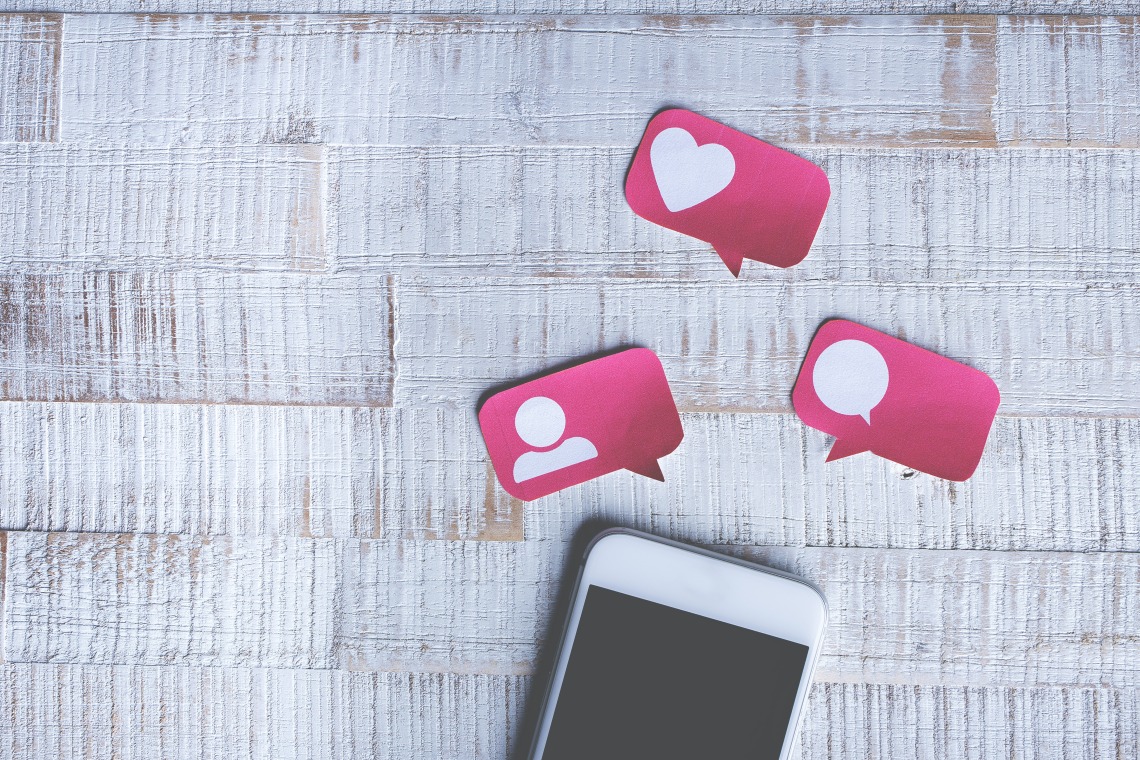How To Use Your Feed To Nourish Your Soul

Now more than ever we are relying on social media to stay connected, but is it working? Studies have shown that use of social media in place of face-to-face connection can increase feelings of loneliness and isolation. There are also studies indicating a correlation between social media use and feelings of depression and anxiety. But when our opportunities for in-person connection are limited, it is more important than ever to use our resources for connection, including social media. Here are some healthy social media habits to try:
1. Follow your feelings: Check in with yourself as you are scrolling through your feed. Notice when content triggers uncomfortable feelings and ask yourself “what about this content is upsetting me?” Maybe it’s FOMO, or despair when viewing images of police violence, or a hit to your self-confidence when you see the filtered to perfection pics posted by a celebrity. Once you recognize HOW you are feeling you can gain clarity on the WHY.
2. Curate your feed: Once you have identified how specific content impacts your emotions you can be more intentional in who you follow. Consider unfollowing or taking a break from accounts that leave you feeling worse about yourself, and look for content that contains beneficial messaging.Use hashtags to search for content such as: #bodypositive, #selfcare, #affirmations, #mentalhealth.
3. See the change, be the change: many of us use social media as our primary news source, but passively viewing story after story of violence and despair can lead to feelings of hopelessness and powerlessness. These feelings are uncomfortable, but are also an important signal that this is a cause that is important to you. Consider following activists and community organizers who are working to make a difference in the causes you care about. Micro-activism is a great way to alleviate feelings of guilt or powerlessness and make a difference without taking too much of your time. Write a letter to your elected officials using Resistbot by texting 50409, give up Starbucks for a week and donate that money to a non-profit, or spend an hour phone banking for a candidate you support.
4. Check your perspective: You are seeing everyone’s highlight reel, not the lonely moments and failures that we all experience. While we all logically know this, reminding yourself when having an intense FOMO moment can bring you back to reality. One trick to really bring it all into perspective is to look at your own social media feed- how would a stranger perceive your life to be like compared to what you know of the reality?
5. Take a break: Find a couple of times during the day that you usually spend on your phone, and decide to do something else instead. One of the best times to do something else? Right before bed. In addition to the increased stress response that can happen when looking at social media, exposing yourself to the bright light of your phone screen inhibits the release of melatonin, the hormone that makes you feel sleepy. Instead, try listening to a podcast, reading a book, doing a puzzle, or listening to a guided meditation as you fall asleep. Better sleep equals improved mood, energy, and ability to concentrate.
6. Find connection: use social media to actively engage with others. Passive scrolling may feel like staying current on your friend’s lives, but it does not help you feel more connected with them. Use social media to foster close relationships. Take a chance and connect with an acquaintance that you’d like to be friends with, or re-establish contact with a friend who you’ve lost touch with.
Mindful awareness of social media’s impact on your feelings and staying intentional about your consumption of social media can have a significant impact on your mental health on a day-to-day basis. Consider using these platforms as a way of creative expression, political protest, or authentic representation of who you really are. Allow these platforms to serve as tools for your well-being instead of an emotional drain.
1 Primack, B. A., Shensa, A., Sidani, J. E., Whaite, E. O., Lin, L. Y., Rosen, D., . . . Miller, E. (2017). Social Media Use and Perceived Social Isolation Among Young Adults in the U.S. American Journal of Preventive Medicine, 53(1), 1-8. doi:10.1016/j.amepre.2017.01.010
2 Woods, H. C., & Scott, H. (2016). #Sleepyteens: Social media use in adolescence is associated with poor sleep quality, anxiety, depression and low self-esteem. Journal of Adolescence, 51, 41–49. https://doi.org/10.1016/j.adolescence.2016.05.00

